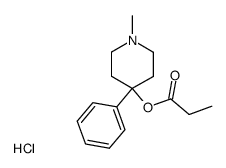Apoptosis of human carcinoma cells in the presence of inhibitors of glycosphingolipid biosynthesis: I. Treatment of Colo-205 and SKBR3 cells with isomers of PDMP and PPMP.
Subhash Basu, Rui Ma, Brian Mikulla, Mathew Bradley, Christopher Moulton, Manju Basu, Sipra Banerjee, Jin-ichi Inokuchi
Index: Glycoconj. J. 20(3) , 157-68, (2004)
Full Text: HTML
Abstract
Apoptosis, or programmed cell death, plays an important role in many physiological and diseased conditions. Induction of apoptosis in cancer cells by anti-cancer drugs and biosynthetic inhibitors of cells surface glycolipids in the human colon carcinoma cells (Colo-205) are of interest in recent years. In our present studies, we have employed different stereoisomers of PPMP and PDMP (inhibit GlcT-glycosyltransferase (GlcT-GLT)) to initiate apoptosis in Colo-205 cells grown in culture in the presence of (3)H-TdR and (3)H/or (14)C-L-Serine. Our analysis showed that the above reagents (between 1 to 20 microM) initiated apoptosis with induction of Caspase-3 activities and phenotypic morphological changes in a dose-dependent manner. We have observed an increase of radioactive ceramide formation in the presence of a low concentration (1-4 microM) of these reagents in these cell lines. However, high concentrations (4-20 microM) inhibited incorporation of radioactive serine in the higher glycolipids. Colo-205 cells were treated with L-threo-PPMP (0-20 microM) and activities of different GSL: GLTs were estimated in total Golgi-pellets. The cells contained high activity of GalT-4 (UDP-Gal: LcOse3Cer beta 1-4galactosyltransferase), whereas negligible activity of GalT-3 (UDP-Gal: GM2 beta 1-3galactosyltransferase) or GM2-synthase activity of the ganglioside pathway was detected. Previously, GLTs involved in the biosynthetic pathway of SA-Le(x) formation had been detected in these colon carcinoma (or Colo-205) cells (Basu M et al. Glycobiology 1, 527-35 (1991)). However, during progression of apoptosis in Colo-205 cells with increasing concentrations of L-PPMP, the GalT-4 activity was decreased significantly. These changes in the specific activity of GalT-4 in the total Golgi-membranes could be the resultant of decreased gene expression of the enzyme.
Related Compounds
| Structure | Name/CAS No. | Molecular Formula | Articles |
|---|---|---|---|
 |
1-methyl-4-phenyl-4-propionyloxypiperidine*HCl
CAS:4968-48-3 |
C15H22ClNO2 |
|
Glioma cell death induced by irradiation or alkylating agent...
2013-01-01 [PLoS ONE 8(5) , e63527, (2013)] |
|
Gas-liquid chromatographic-mass spectrometric determination ...
[J. Chromatogr. A. 408 , 356-9, (1987)] |
|
Involvement of gangliosides in glucosamine-induced prolifera...
2005-06-01 [Glycobiology 15(6) , 585-91, (2005)] |
|
Apoptosis-induced inhibition of CD1d-mediated antigen presen...
2008-09-01 [Immunology 125(1) , 80-90, (2008)] |
|
Chronic Parkinsonism secondary to intravenous injection of m...
1979-12-01 [Psychiatry Res. 1 , 249-254, (1979)] |